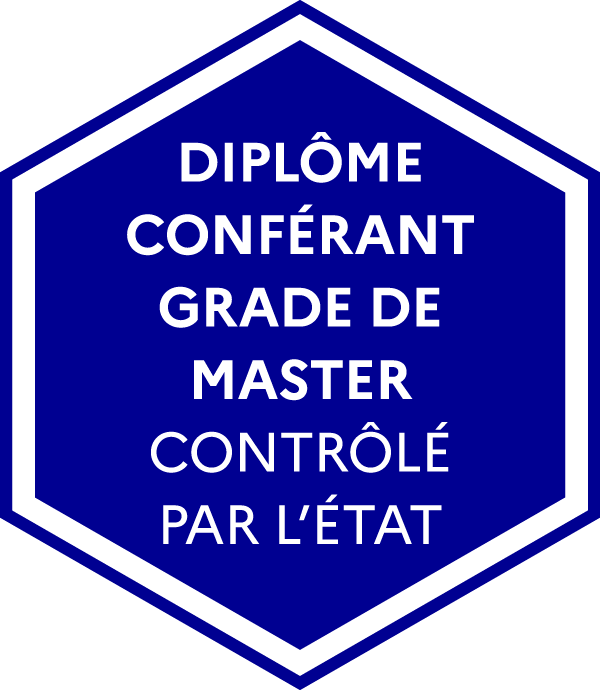Number of hours
- Lectures 6.0
- Projects -
- Tutorials 9.0
- Internship -
- Laboratory works -
- Written tests 1.0
ECTS
ECTS 1.5
Goal(s)
This UE is an introduction to Conversational Generative AI. The objectives are:
- Understand the main concepts, issues and applications of conversational generative AI in industrial engineering
- Understand the main technical principles of conversational generative AI (natural language processing operations, architectures, LLM, prompting) and their limitations
- Be able to adapt a generic LLM for an industrial engineering application
- Be able to design and evaluate human-conversational generative AI interactions for industrial engineering tasks
Content(s)
Introduction, uses, and technologies:
- 1CM: Learn about the challenges and applications of conversational generative AI in industrial engineering:
-- What is a generative model?
-- What are the use cases in industrial engineering?
-- What are the main considerations? Cost, resources, infrastructure, bias, liability, etc.
Understand the main principles of conversational generative AI (natural language processing operations, architectures, LLM, prompting) and their limitations: - 1CM: LLM + Architectures + Prompt engineering
-- What is a Large Language Model?
-- LLMs: BERT, GPT, Llama, Mistral, etc.
-- Transformer
-- Training + Fine-tuning (LoRA, QLoRA)
-- Structure, zero-/one-/few-/multi-shot, chain-of-thought, prompt iteration
-- ... - 1TP : NLP basics (tokenization, stemming, lematization, sentence splitting, NER, stop words removal, vector space model, bag of words, word embeddings)
- 1 TP : Prompt engineering
Be able to adapt a generic LLM for an industrial engineering application: - 1CM: tuning techniques: few shots learning, RAG, graphRAG, fine tuning, etc.
- 3TP: application of tuning techniques
Designing and evaluating human-IA conversational interactions for industrial engineering tasks: - 1CM: Design and evaluation of conversational generative human-IA interaction
- 1TP: Evaluation of conversational generative human-IA interaction
Students will have taken and validated the following courses: Probability and Statistics; Programming with R
The following weighting of grades is compatible with distance exams
Session 1:
- N1 = 0.5 x CC1 + 0.5 x ET1
Session 2:
- N2 = 0.5 x CC1 + 0.5 x ET2
Cette pondération est compatible avec une organisation des enseignements et des examens en distanciel
Session 1:
- N1 = 0.5 x CC1 + 0.5 x ET1
Session 2:
- N2 = 0.5 x CC1 + 0.5 x ET2
The course exists in the following branches:
- Curriculum - Engineer student Master SCM - Semester 7
- Curriculum - Engineer student Master PD - Semester 7
Course ID : 4GMC14C2
Course language(s): 
You can find this course among all other courses.
Manning, Christopher D., and Hinrich Schutze. 1999. Foundations of Statistical Natural Language Processing. The MIT Press. Cambridge, Mass.: MIT Press.
Phoenix, J., & Taylor, M. (2024). Prompt Engineering for generative AI. "O'Reilly Media, Inc.".
Raschka, S. (2024). Build a Large Language Model (From Scratch). Simon and Schuster.
Alammar, J., & Grootendorst, M. (2024). Hands-on large language models: language understanding and generation. " O'Reilly Media, Inc.".
Cila, N. (2022). Designing Human-Agent Collaborations: Commitment, responsiveness, and support. CHI Conference on Human Factors in Computing Systems, 1–18. https://doi.org/10.1145/3491102.3517500
Amershi, S., Weld, D., Vorvoreanu, M., Fourney, A., Nushi, B., Collisson, P., Suh, J., Iqbal, S., Bennett, P. N., Inkpen, K., Teevan, J., Kikin-Gil, R., & Horvitz, E. (2019). Guidelines for Human-AI Interaction. Proceedings of the 2019 CHI Conference on Human Factors in Computing Systems, 1–13. https://doi.org/10.1145/3290605.3300233
White, J., Fu, Q., Hays, S., Sandborn, M., Olea, C., Gilbert, H., Elnashar, A., Spencer-Smith, J., & Schmidt, D. C. (2023). A Prompt Pattern Catalog to Enhance Prompt Engineering with ChatGPT (No. arXiv:2302.11382). arXiv. http://arxiv.org/abs/2302.11382
French State controlled diploma conferring a Master's degree

Common Core presentation
Programme courses S5
Programme courses S6
Supply Chain Management
Programme presentation
Programme courses S7
Programme courses S8
Programme courses S9
Programme courses S10
Product Design
Programme presentation
Programme courses S7
Programme courses S8
Programme courses S9
Programme courses S10
Contacts
Academic staff
- Head of studies:
Pierre Lemaire - Head of 1st Year Program:
Abdourahim Sylla - Head of Supply Chain Management Program:
Irène Gannaz - Head of Product design Program:
Yann Ledoux
Registrar's office
- Head of Registrar's office:
genie-industriel.scolarite@grenoble-inp.fr - Secretary's office 1st Year:
Valérie Demicheli - Secretary's office 2nd Year:
Sylvie Malandrino - Secretary's office 3rd Year:
Vincente Odier - International relations department:
Nadia Dehemchi



